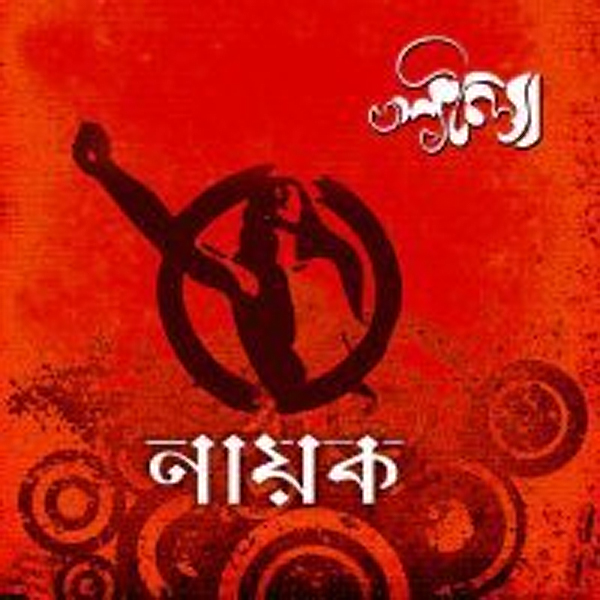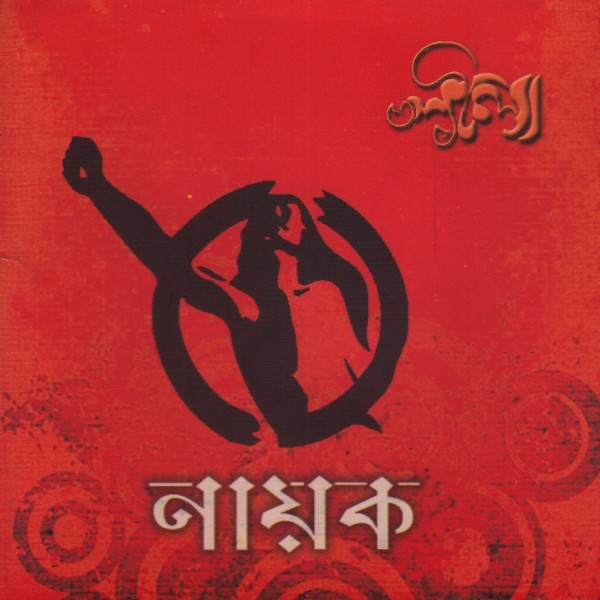Artist Detail

Biography
????::
There are many ways to describe Leela’s music – it is noise as much as it is melody, it is as mystic as it is punkified, it bellows with rage as much as with love – it is a tryst of folk with rock that is sometimes groovy and sometimes a hammer blow to the mind. Essentially, Leela’s signature lies in the panache with which it plays with elements of folk, rock and metal to kickoff a musical revolution in Bangladesh. This bold and dauntless music is a leitmotif of the joys and trials of the people living everyday in solidarity with each other. Sometimes they talk about how the fashionable banality of urban existence turns even beloveds into strangers; sometimes they slam our silly, domestic entanglements to the wall and challenge us to rethink the way we live and love.
Leela is the only musical ensemble in Bangladesh that has the capability to render both the traditional and akhra styles of folk/baul-fakir songs as well as its own folk-rock fusion numbers concurrently in the same session. Traversing Nodia to the present day Dhaka, Leela is truly the definitive spirit of a new urbanism that is decolonized and organic – the new mystic on the block.
According to Gilles Deleuze, ‘becoming music’ is a way of experiencing the (forms and dimensions of) life musically, which in a way, according to Lalon Fakir, being ‘sahaj’. Arup Rahee/Leela do NOT consider the audience as passive consumers of “musical” sounds and ambiences, rather they welcome the audience to enliven our life with de novo musical experiences, to be part of ‘becoming music’ collectively. Arup Rahee/Leela have proven their capacity to make space for commonizing our common cause, i.e., to live our life to the fullest and deepest, musically.
Arup Rahee and his ensemble Leela are inspired by the baul-fakir-sahajia tradition, feminism, sufism, tantra and shakta tradition, nath-mohayan buddhism, dialectic materialism, Sri Chaitanya, Lalon Fakir, Kazi Nazrul Islam, Abbas Uddin, Hemango Biswas, Rabindranath Thakur, Ustad Alauddin Khan, Pandit Kumar Ghandharva, Mallikarjun Mansur, Gangubai Hangal, Girija Devi, Pete Seeger, Harry Belafonte, Jimmi Hendrix, Gill Scot Heron, Led Zeppelin, Black Sabbath, Judas Priest, Pat Smith, Janis Joplin, Rage Against The Machine, Camel, among others. However, Arup Rahee/Leela have transcended the influence of these major thoughts/practices/traditions/artists to create a new language of experience and imagination – discourse of music and music of discourse.
FAQ Answered:
LEELA…a fashionably good name! what really does it mean, anyway?
in Bangla’s tradition, two different categories/ideas are used to explain/interpret the world and its events…LEELA and Nitya…Nitya is the eternity/void/real... Nitya is NOT day- to-day events…and LEELA is the praxis and celebration of truth, of liberated desires.
what is important is praxis, important is the struggle of huge masses, of people around the world - who are celebrating their life as the struggle goes on for liberation and for peace.
LEELA is part of this praxis and this struggle, calling fellow folks in celebrating life through all this.
so here comes another typically ‘different’ Bangladeshi Rock/Fusion group!?
`bands’ in Bangladesh are typically formed by the most privileged faunas who “love music”…they shout as they “rock”, “heavy metal” and whatever; they make melodies, melodramas; they “appreciate” classical music, they play drums and electric guitars, sometimes also sarod or esraj or khol; they even sing Lalon, Shachin, Abdul Alim and so on, because they “love music”…and so they make “proper”, “beautiful”, “appropriate”, “pure”, “joss” music.
but well, for LEELA, this is not all that simple…we celebrate, utter, locate, symbolize, and expose the cause of music - its social and cultural, politico-philosophical-aesthetic composition…we challenge and offer the so-called `audience’ and `consumer’ to take part in a counter-discourse of music and music of counter-discourse.
for us, silence and sound and tune and music is nothing absolute and `independently’ worthy of love, or of a ‘beauty’ that we desire for…music, like `love’, is not value-free… simply…music is loaded with ideology, value. it symbolizes, it signifies. it is signified at the same time…`abstract’, `surreal’, `modern’, `postmodern’, `normal’, `smooth’, ‘not-smooth’…whatever, no matter what we do, ideology and politics remains.
every composition, every tune, every lyric, every organized, organized-disorganized or whatever, sound and silence has its own socio-cultural-political-genealogical-historical grounds and skies, suns and moons, trees and plants, animals …beings and events…there are parts and wholes of truth procedures…there are perspectives…gazes…ideological apparatuses.
so you have four: science, love, politics and art a.k.a music.
Music…hmm…what kind of music? who is/are your guru/s? who are you influenced by?
it all depends on what you mean by inspiration, learning and practice: praxis…the baul-fakir-shadhok-revolutionary-visionaries-practitioners are our inspiration…for example, it is fashionable to name, for instance, lalon...there are a lot of names. in fact you too! society at large.
capital makes or uses fashion…fashion compels…for instance, folks/bands/singers sing, let’s say, lalon fakir songs without upholding the philosophy and politics of the songs, as these ‘music lovers’ “love” music…we are not in this lovers’ paradise...
also for example, people do their rock/metal etc. because they “love music”…we do our `rock’, with our own forms, adding what comes inspirationally, from west and north and the global south…we are inspired by the music and the musicians who do music as praxis…NOT “pure art”…we are not going to make a list of those names here.
some people say, oh! your music is, in some cases, influenced by baul/folk/nazrul/rabindra/gonosangeet/rock/…what not…??
thank you! because you are saying that we are on the right track.yes, we are inspired by, among others, baul-fakir-sahajia tradition, feminism, sufism, tantra and shakta tradition, nath-mohayan buddhism, dialectic materialism, Sri Chaitanya, Lalon Fakir, Kazi Nazrul Islam, Abbas Uddin, Hemango Biswas, Rabindranath Thakur, Ustad Alauddin Khan, Pandit Kumar Ghandharva, Mallikarjun Mansur, Gangubai Hangal, Girija Devi, Pete Seeger, Harry Belafonte, Jimmi Hendrix, Gill Scot Heron, Led Zeppelin, Black Sabbath, Judas Priest, Pat Smith, Janis Joplin, Rage Against The Machine, Camel, among others. However, Arup Rahee/Leela have transcended the influence of these major thoughts/practices/traditions/artists to create a new language of experience and imagination – discourse of music and music of discourse.
did someone speak the word “commitment”?
sorry, LEELA is not a formation for the fashionable nonsense of charity and social commitments, as some who perform only for raising funds for let’s say AIDS “victims” and the “poor”, and don’t bother about the social and political cause of AIDS or poverty.
rather we ask for the creative use of our commonsense to look into the matter of the issue.
rather we work with the social processes which raises questions and fights in solidarity with the “victims” to overcome the problems - poverty/exclusion/injustice; fights against the exploitative, unhealthy, and unsustainable social, economic and political systems.
now talking of some important, necessary clichés…which side you are in?
besides its musical causes and concerns, LEELA has a commitment towards the development of local entrepreneurship and immanent self-development of our society, incorporating all the achievements of societies and communities around the world… LEELA feels itself committed to the identities of different nationalities and the sovereignty of people…it is committed to healthy international relations based on co-operation and solidarity for respective nations and peoples of the world.
LEELA is opposed to imperialism and war.
LEELA is committed to a non exploitative, non hierarchical, co-operation and solidarity based local, national and international order…LEELA is opposed to mindless consumerism…LEELA is opposed to racism, sexism and patriarchy and all forms of exploitation, repression and hierarchy.







